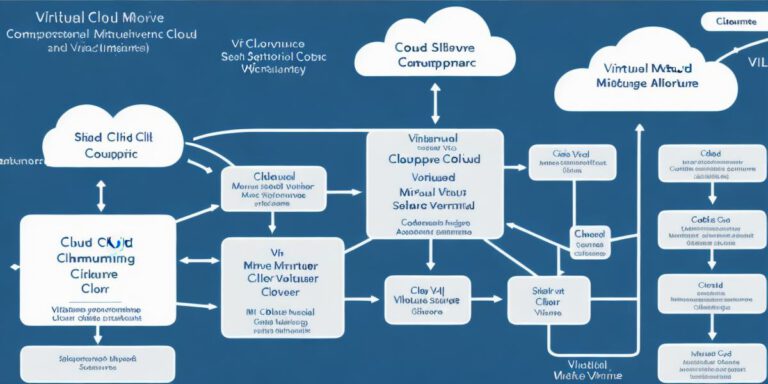VPS vs Cloud Server: Decoding Variations

When it comes to choosing between a Virtual Private Server (VPS) and a cloud server, there are often varying opinions on which is the better option for different scenarios. However, in this article, we will decode the variations between these two types of servers and help you make an informed decision that best fits your needs.
What is a VPS?
A VPS is a virtual machine that runs its own operating system (OS) and provides more control and flexibility than shared hosting. It is essentially a physical server that has been partitioned into multiple virtual machines, with each virtual machine running its own OS, applications, and resources. This allows for greater customization and control over the server’s settings, but also requires more technical expertise to manage.
What is a Cloud Server?
A cloud server, on the other hand, is a physical server that is connected to a network of servers and provides access to those resources through the internet. It is managed by a third-party provider, who handles all maintenance, upgrades, and security updates. This allows for greater scalability and flexibility in terms of resource allocation, but also means less control over the server’s settings.
Factors to Consider
When deciding between a VPS and a cloud server, there are several factors to consider:
- Cost: Cloud servers typically have lower upfront costs than VPSes, as they are managed by a third-party provider. However, the ongoing cost of maintenance and updates can add up over time. VPSes, on the other hand, require more initial setup but may be more cost-effective in the long run.
- Technical Expertise: VPSes require more technical expertise to manage than cloud servers, as they offer greater control over server settings. Cloud servers, on the other hand, are managed by a third-party provider and require less technical expertise.
- Scalability: Cloud servers offer greater scalability in terms of resource allocation, as they can quickly add or remove resources as needed. VPSes, on the other hand, may require more manual intervention to scale up or down.
- Security: Both VPSes and cloud servers offer high levels of security, with regular backups, firewalls, and security updates. However, cloud servers are managed by a third-party provider, which may increase the risk of data breaches or security vulnerabilities.
Case Studies
To help illustrate the differences between VPSes and cloud servers, let’s look at some real-life examples:
- A small business owner who wants to host a website and email server but doesn’t have much technical expertise may benefit from a cloud server. It offers low upfront costs, minimal maintenance, and easy scalability.
- A developer who needs more control over server settings and customization may prefer a VPS. It offers greater flexibility and technical expertise, but requires more initial setup and ongoing management.
- An e-commerce business that expects high traffic and requires a lot of resources may benefit from a cloud server. It offers scalability and reliability in terms of resource allocation, while still allowing for some level of control over server settings.
Conclusion
In conclusion, choosing between a VPS and a cloud server depends on your specific needs and requirements. While both offer high levels of security and reliability, they differ in terms of cost, technical expertise, scalability, and control. By considering these factors and weighing the pros and cons, you can make an informed decision that best fits your business needs.
FAQs
- What is the difference between a VPS and a cloud server?
A VPS is a virtual machine that runs its own OS and provides more control over server settings than shared hosting, while a cloud server is a physical server connected to a network of servers and managed by a third-party provider. - Which is better for small businesses?
Cloud servers are often better for small businesses due to low upfront costs, minimal maintenance, and easy scalability. However, VPSes may be more cost-effective in the long run. - Do I need technical expertise for a VPS or a cloud server?
VPSes require more technical expertise than cloud servers, as they offer greater control over server settings. However, cloud servers are managed by a third-party provider and still require some level of technical expertise.








